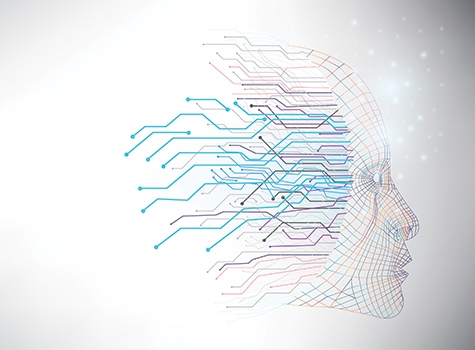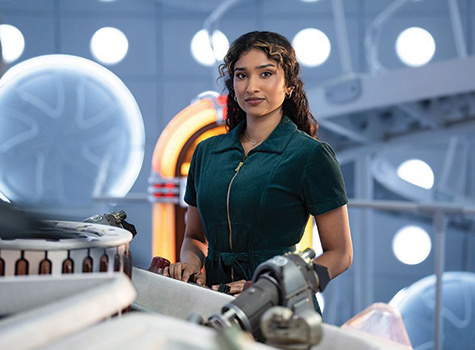
I’m sitting at my computer. Working. It’s a lovely September afternoon and the warm sunlight is streaming through the window. Wait a minute. What’s that, um, aroma? It is rather offending. Ok, who did that? Hold on. I’m the only one in the room, and it wasn’t me. Wait, I was just trying to explore the new AI functionality in the design software I’m using. No, it couldn’t be. Artificial Intelligence is already aping us, now it has already acquired the ability to clear a room via what is typically a very human intestinal function?
I thought becoming human-like would take decades for AI. We are the top predators, the wily planet conquerors and have been at it for a while. We cannot be duplicated or subjugated that quickly. The code to power AI is written by humans, after all, so it is logical that someday it will begin to acquire our humanness among its abilities. I’ve been thinking AI will eventually acquire our foibles, anxieties, sneakiness, and myriad other things that make us human, but it will take decades more. Maybe I am wrong.
A bright future is imagined via the inescapable advent of AI that is now working to infect all manners of our lives. There is good news in this. Convenience will increase. Productivity will increase. Efficiency will increase. Then there is the other end of the seesaw, and so will dissonance, disinformation, misinformation, and fakeness. This new human mini-me is intriguing and very young. Wait till it hits its teenage years.
The blissfully sunny world we are imagining, made more convenient by new technologies is, of course, upon us. Along with the ease of finding information, the fake speech, fake videos, fake images, maybe even fake aromas, all will rapidly rise. Efforts at manipulation of peoples by politicians, rogue elements, corporations, are the inevitable possibilities of these new tools.
This aroma I’m fanning away on this lovely afternoon may not be artificial but smells pungent and pretty darn real. A new world is rising, generated by code, driven by its ability to evolve and further create its own code. These new times are going to require relearning and realigning ourselves with other peoples and the human communities, lest we get duped at every turn by all things artificial. We must evolve with the rapidly nonhuman technological world that is incoming.
There is a need to slow down, think this out, write new laws and procedures, and dare I say, regulations, for these shiny new times. This new phase of our daily lives, which will exist in liquid, solid, and, particularly, gaseous states, all at once, is going to challenge us faster than we can adapt. That is a quandary, a fear that I fear.
By its intended nature, and its moniker – “artificial†– AI will inject much uneasiness in our lives. It’s one of the reasons that writers and actors are striking right now, so that in the future their likenesses or writings will not be faked or used without their permissions.
Here are the alarm bells of this hour. Wherever we land while sailing the cosmos on the spacecraft known as AI, that potential shiny future will be preceded by a dark reckoning, a battle of realigning human intelligence and connections while adjusting to the rapidity of changes.
Any technological advancement creates dissonance and unhinges the status quo. This is not a calculator replacing the old Slide Rule. Radio didn’t kill newspapers. TV didn’t kill radio and the Internet didn’t kill TV, but most technological advancements are slow on the intake and don’t necessarily make existing ones obsolete in the blink of an eye. AI is vastly different. There are massive unknowns afoot with AI, something even its current creators don’t fully understand.
I have written for years that we are creating a new world that will require fewer humans to help run that world. This means there simply won’t be enough equitable jobs for all who want one, at least not well-paying and satisfying jobs that give a sense of integrity and achievement. AI will replace many workers. There will be lots and lots of part time jobs, side hustles, menial labor jobs while the dirty and drudgery jobs – construction, meat processing plants, farms, cleaners, roads builders – seem to have fewer and fewer takers.
The AI spaceship has left the spaceport and is coming at us at previously unimagined speeds. I’m beginning to spend more time sniffing around to find the artificialness, the nonhuman in my encounters.
Next time there is some room-clearing aroma floating around, maybe it wasn’t one of the humans gathered there. Maybe it was that sneaky AI software on your phone or computer.
Artificial Intelligence or Artificial Indigestion? Indeed.
Samir Shukla is the Editor of Saathee Magazine
Contact: [email protected]
Twitter: @ShuklaWrites
Newsletter: ShuklaWrites.Substack.com



